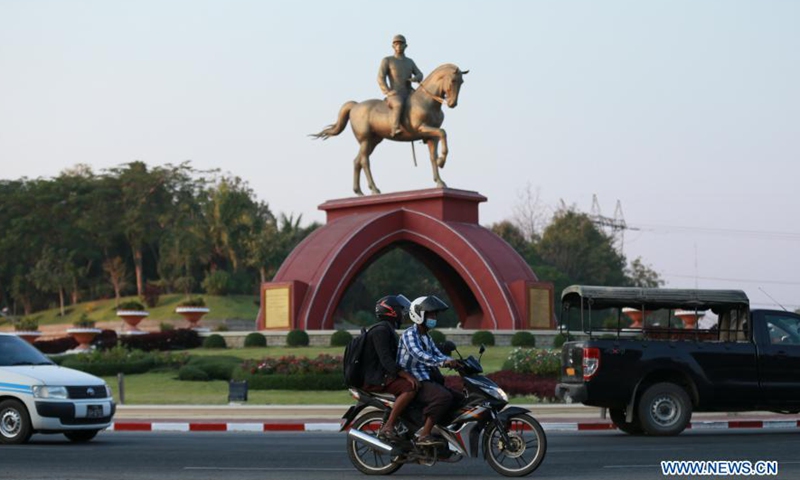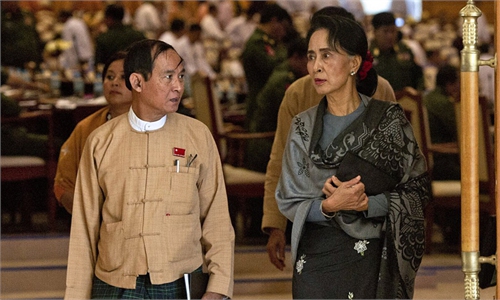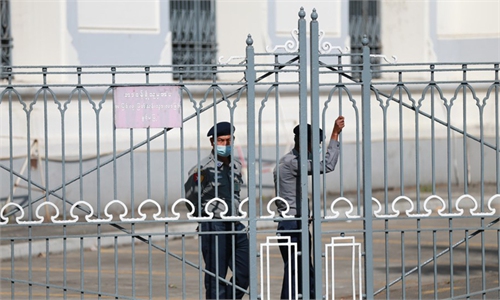
Two citizens ride a motorcycle passing an urban statue in Nay Pyi Taw, Myanmar, Feb. 5, 2021.Photo:Xinhua
Thousands of demonstrators marched in towns and cities across Myanmar on Monday, witnesses said, demonstrating for a third straight day against the military's removal and detention of elected leader Aung San Suu Kyi a week ago.Calls to join protests and to back a campaign of civil disobedience have grown louder and more organized since the uproar on February 1, which drew widespread international condemnation.
In the biggest city of Yangon, a group of saffron-robed monks marched in the vanguard of Monday's protest with workers and students. They flew multicolored Buddhist flags alongside red banners in the color of Suu Kyi's National league for Democracy (NLD), witnesses said.
"Release Our Leaders, Respect Our Votes, Reject Military Coup," said one sign. Other signs read "Save democracy" and "Say No to Dictatorship." Many protesters wore black.
Protests that swept the country on Sunday were the biggest since the "Saffron Revolution" led by Buddhist monks in 2007 that helped prompt democratic reforms that were upended by the February 1 uproar.
"Marchers from every corner of Yangon, please come out peacefully and join the people's meeting," activist Ei Thinzar Maung urged followers on Facebook, using VPN networks to rally protesters despite a junta attempt to ban the social media network.
Thousands marched in the coastal city of Dawei, in the southeast, and in the Kachin state capital in the far north, where they were dressed head to toe in black.
So far gatherings have been peaceful, unlike bloody crackdowns during previous widespread protests in 1988 and 2007. A convoy of military trucks was seen passing into Yangon late on Sunday, raising fears that could change.
Reuters has been unable to contact the junta for comment on the protests and state television has not mentioned them.
Pope Francis came down clearly on Sunday against military leaders in Myanmar following the uproar there last week, expressing his "solidarity with the people" of the country and asking leaders to serve the common good and seek "democratic" harmony.
Francis, speaking at his Sunday address in St. Peter's Square, said he was following the situation in Myanmar, which he visited in 2017, "with deep concern."
"In this very delicate moment, I want to again assure my spiritual closeness, my prayers and my solidarity with the people of Myanmar."
Reuters


